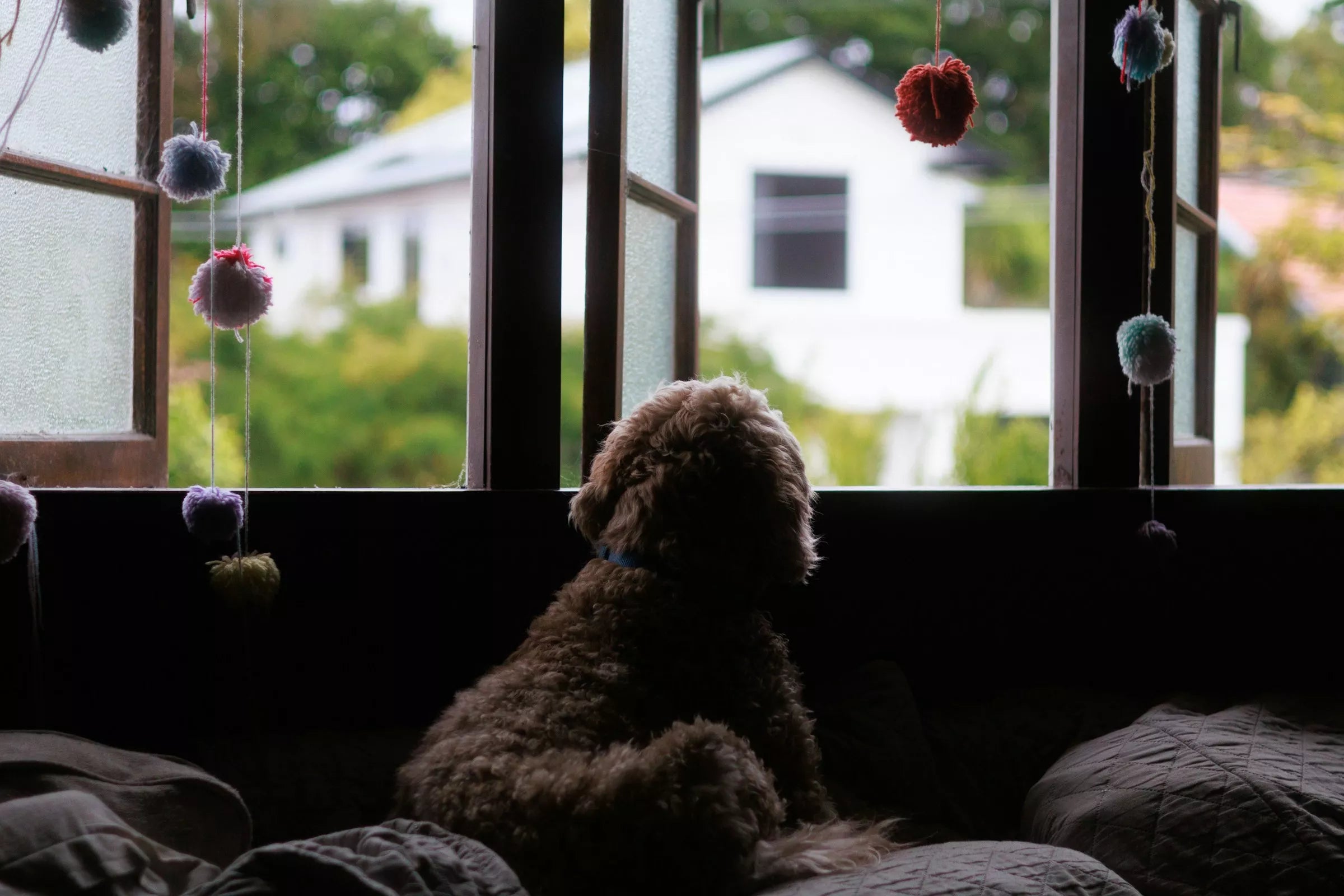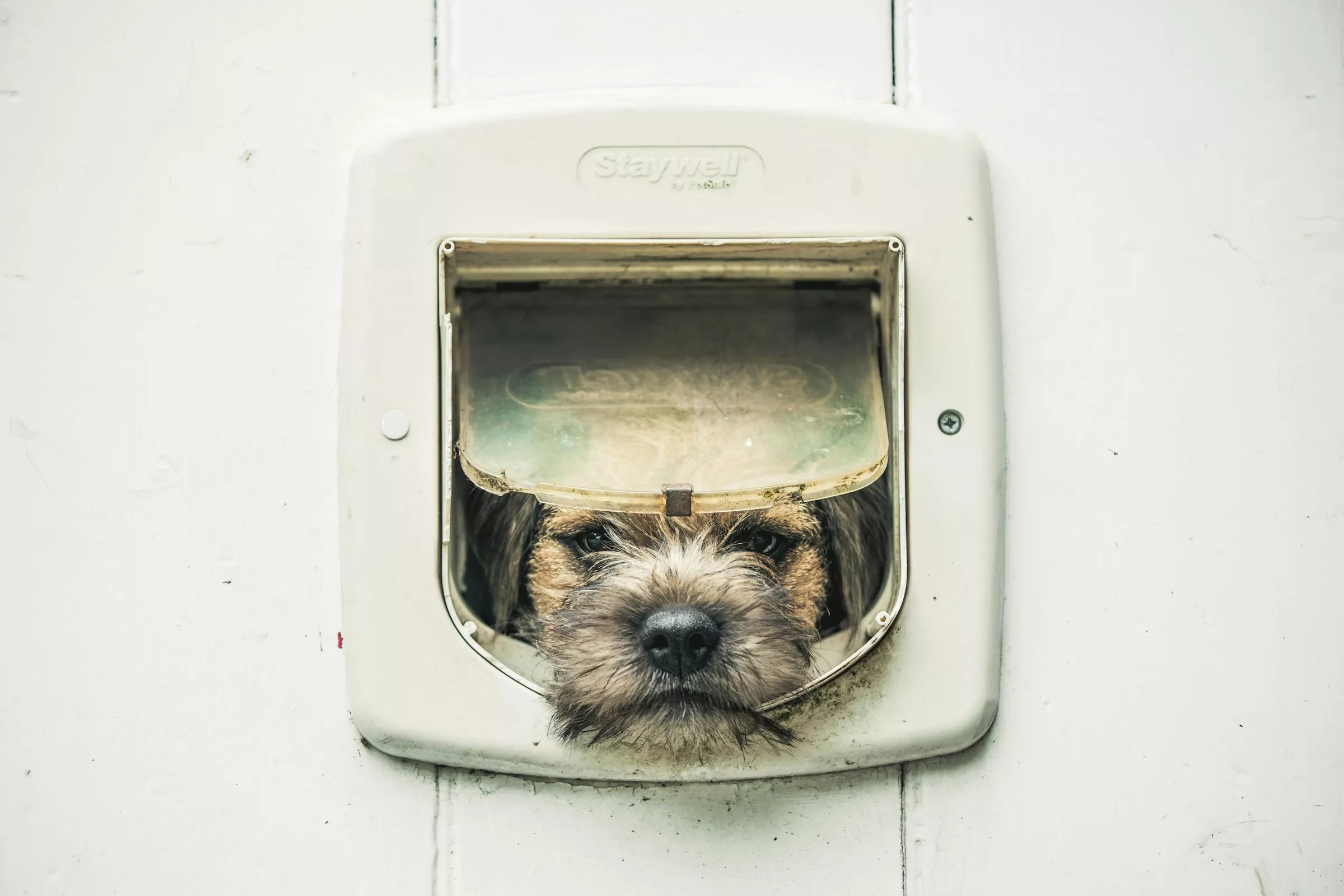Introduction
Does your dog go into overdrive every time someone steps into your home? If so, you’re not alone. Many dogs bark at visitors—it’s one of their most natural instincts. But let’s face it: this behavior can turn from mildly annoying to downright overwhelming.
As dog parents, we want our furry companions to feel happy, calm, and secure. Yet, when a barking frenzy greets every guest, it can leave you feeling frustrated and unsure of how to handle the situation. Don’t worry—you’re not failing as a dog parent. Barking is a problem you can manage with the right approach. Let’s dive into why this happens and what you can do about it.
Why Does Your Dog Bark at Visitors?

Understanding the “why” behind your dog’s barking is the first step toward fixing the issue. Here are the most common reasons:
Instinct to Protect Their Territory
Dogs are naturally protective. When a visitor shows up, your pup might perceive them as a potential threat. Barking is their way of saying, “Hey, this is my home! Who are you?”
Fear or Anxiety Around Strangers
Not all dogs feel comfortable around new people. If your dog wasn’t exposed to different people as a puppy, they might grow up feeling uneasy when someone unfamiliar enters their space.
Excitement or Overstimulation
Some dogs bark because they’re excited, not scared. They might associate visitors with playtime, belly rubs, or treats. While the intent is positive, the excessive barking can still be hard to manage.
Lack of Socialization or Training
If a dog hasn’t been taught how to behave around guests, barking can become their default reaction. Without guidance, they simply don’t know what’s expected of them.
How to Understand Your Dog’s Behavior
Before jumping into solutions, take a moment to observe your dog and figure out what’s really going on.
Observing Body Language
Is your dog’s tail wagging, or are they growling with their ears pinned back? Understanding whether they’re barking from fear, excitement, or protectiveness will help you choose the right training method.
Identifying Bark Triggers
Does your dog bark at everyone, or just certain people? Maybe it’s the sound of the doorbell or a knock that sets them off. Pinpointing the triggers can give you a better idea of where to start.
Ways to Manage Barking at Visitors

When your dog barks, staying calm is key. Let’s go over a few strategies to manage this behavior:
Stay Calm and Consistent
Dogs are incredibly intuitive—they feed off your energy. If you get stressed or yell, your dog might think something is wrong, which could make their barking worse. Instead, speak in a firm but calm voice to redirect their attention.
Use Positive Reinforcement
When your dog behaves well, reward them. This can be a treat, a favorite toy, or even a simple “Good boy!” or “Good girl!” Over time, they’ll associate calm behavior with positive outcomes.
Create a Calm Environment Before Visitors Arrive
If you know guests are coming, try to set a peaceful tone in your home. Close the curtains to block outside distractions and play calming music if needed. A tired dog is also a calmer dog, so consider a quick walk before visitors arrive.
Training Techniques to Reduce Barking
Consistent training can make a world of difference. Here are some methods to try:
Teach the “Quiet” Command
When your dog barks, let them bark a few times, then calmly say, “Quiet.” Once they stop barking—even for a second—reward them with a treat or praise. Repeat this process until they learn what “Quiet” means.
Gradual Desensitization to Visitors
Start by having a friend or family member act as a “visitor.” Let your dog see the person from a distance, and reward calm behavior. Slowly decrease the distance over time, always praising your dog for staying calm.
Redirect Attention With Toys or Treats
When the doorbell rings, hand your dog a chew toy or a puzzle feeder. This can redirect their focus and keep them occupied while your guests settle in.
When to Seek Help from a Professional
If your dog’s barking feels out of control despite your best efforts, it might be time to seek help. A professional trainer or behaviorist can work with you and your dog to address deeper issues like fear or aggression. Don’t hesitate to reach out—sometimes a fresh perspective is all you need.
Quick Tips for Immediate Visits

Got surprise guests? Here’s how to handle things in the moment:
- Place your dog in another room or use a baby gate to limit their access to visitors.
- Offer a distraction, like a high-value chew toy.
- Use a calm voice to reassure them, but avoid yelling—it only adds to the chaos.
Conclusion
If your dog won’t stop barking at visitors, don’t lose heart. Remember, this is a solvable issue! With patience, consistency, and a lot of love, you can help your furry friend feel more at ease around guests. Every dog is different, so take things at a pace that works for both of you. Your home can be peaceful again—just stick with it!
FAQs
Why does my dog bark so much when someone knocks on the door?
Dogs often associate knocking with strangers entering their space, triggering their protective instincts.
Can older dogs learn to stop barking at visitors?
Yes! While it may take longer to train an older dog, consistent practice and positive reinforcement can lead to success.
Should I punish my dog for barking?
No. Punishment can confuse your dog or even increase their anxiety. Focus on rewarding calm behavior instead.
How long does it take to train a dog to stop barking at visitors?
It varies. Some dogs show improvement within weeks, while others may take several months. Stay patient and consistent.
Are some breeds more prone to barking at strangers?
Yes, breeds like terriers, shepherds, and hounds are naturally more vocal due to their roles as watchdogs or hunters.















Share:
Housebreaking Your Puppy in Just 7 Days
3 Essential Supplements for Your Dog’s Health